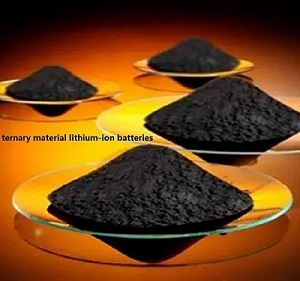Ternary lithium-ion batteries have excellent electrochemical properties such as high energy density, good safety and stability, support for high-rate discharge, and moderate cost advantages. The battery field has been widely used.
 Ternary material lithium-ion batteries are generally divided into ternary polymer lithium-ion batteries, ternary power lithium-ion batteries, and ternary low-temperature lithium-ion batteries.
Ternary material lithium-ion batteries are generally divided into ternary polymer lithium-ion batteries, ternary power lithium-ion batteries, and ternary low-temperature lithium-ion batteries.
1. Ternary polymer lithium-ion battery
Ternary polymer lithium ion battery refers to a lithium ion battery whose positive electrode material uses nickel cobalt lithium manganate ternary positive electrode material and uses gel polymer electrolyte. As a transport medium for ion movement, electrolyte is generally composed of solvent and lithium salt. The electrolyte of lithium secondary battery mainly includes liquid electrolyte, ionic liquid electrolyte, solid polymer electrolyte and gel polymer electrolyte. Its greatest advantage is the high mechanical strength of the membrane and the large surface area provided by the membrane. The thinner the film, the higher the energy density because more active species can be embedded in the battery.
2. Ternary power lithium-ion battery
The so-called power ternary lithium-ion battery means that the battery supports high-rate and high-current discharge, has high power density, and releases more energy per unit time. The rate discharge capability refers to the ability to maintain the battery capacity when the charge and discharge rate is increased. The rate of charge and discharge is represented by xC, 1C means that the nominal capacity of the battery can be used up in 1h, while the rate of discharge at 2C can be used for 30min.
For the ternary power lithium-ion battery, the one with the most research and the most mature technology is Japan's Panasonic Corporation, which can achieve 30C discharge in the experimental stage, among which the power-type 18650 ternary lithium-ion battery has been successfully commercialized and mass-produced. The discharge rate can reach 12C, and the capacity is also as high as 3300mAh.
3. Ternary low temperature lithium-ion battery
The low-temperature characteristics of lithium-ion batteries are mainly examined from the low-temperature discharge characteristics and cycle life. The most important thing for low-temperature batteries is to maintain the fluidity of materials under low temperature conditions, so that lithium ions can freely shuttle between the positive and negative electrodes to realize the charging and discharging of the battery. . At present, ternary lithium-ion battery manufacturers at home and abroad can basically achieve a discharge temperature of -20 degrees, and the discharge capacity is greater than 50%, and the cycle life is about 400 times, which can fully meet the needs of ordinary electrical appliances and power consumption scenarios.



